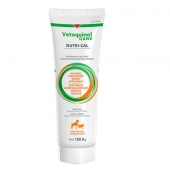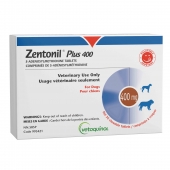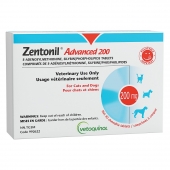The year is filled with recurring expenses many households don’t always budget for, like dentist appointments, new car tires and visits to the veterinary clinic. With some basic planning, you can spread the cost of veterinary care over the full year instead of having medical bills become a source of financial stress. Here’s how.
The cost of routine veterinary care
According to the Ontario Veterinary Medical Association, dog owners can expect to spend an average of $1,350 on veterinary care per year. Parasite prevention is less expensive for cats, and Lyme disease is a rare occurrence in felines, explaining the slightly lower total of $1,148 for cat owners.
Use the chart below to plan your expected yearly costs in routine veterinary care, and divide this amount by 12. The result is how much money you should set aside each month to cover regular veterinary visits. Alternately, if you’re paid every two weeks, you may divide this amount by 26 to match your income schedule.
|
Annual cost of owning a dog |
Annual cost of owning a cat |
||
|
Parasite prevention |
$241 |
Parasite prevention |
$135 |
|
Exams with vaccines |
$175 |
Exams with vaccines |
$175 |
|
Heartworm/Lyme test |
$96 |
- |
- |
|
Fecal exams |
$51 |
Fecal exams |
$51 |
|
Wellness profile (blood work) |
$135 |
Wellness profile (blood work) |
$135 |
|
Dental cleaning |
$652 |
Dental cleaning |
$652 |
|
Veterinary Care Total |
$1,350 |
Veterinary Care Total |
$1,148 |
Source: The Annual Cost of Owning a Dog, The Annual Cost of Owning a Cat, Ontario Veterinary Medical Association
Adopting a kitten or puppy? Budget a little extra.
The first year of pet ownership is more expensive. While you save money on things like dental cleaning and blood work (which shouldn’t be necessary yet), other procedures such as having your furry friend spayed or neutered and microchipped will require additional visits to your veterinary clinic. Consider the average extra costs below before adopting a new pet.
|
One-time expenses for a puppy |
One-time expenses for a kitten |
||
|
Exams with vaccines |
+$349 |
Exams with vaccines |
+$389 |
|
Deworming medication |
+$68 |
Deworming medication |
+$68 |
|
Fecal exams |
+$50 |
Fecal exams |
+$50 |
|
Microchip |
+$103 |
Microchip |
+$103 |
|
Neuter/Spay |
+$761 to +$838 |
Neuter/Spay |
$588 to $728 |
|
Savings |
–$994 |
Savings |
–$787 |
|
Extra Veterinary Care |
+$337 to +$414 |
Extra Veterinary Care |
$411 to +$551 |
Source: Based on The Annual Cost of Owning a Puppy, The Annual Cost of Owning a Kitten, Ontario Veterinary Medical Association
Plan for emergencies
Hopefully, your pet will live a long, happy and healthy life. But accidents and unexpected illnesses may happen at any age, and an emergency vet visit may cost up to a few thousand dollars. If you don’t have access to an emergency fund for such situations, consider purchasing pet insurance, which provides immediate protection in return for fixed monthly payments.
Take dog size and breed into consideration
With dogs, the cost of veterinary care can vary greatly depending on size and breed. It takes a much larger amount of anesthesia to prepare a Bernese Mountain Dog for surgery than a Pomeranian! Similarly, certain dog breeds can be more prone to specific health issues, such as respiratory problems in bulldogs and ear infections in cocker spaniels, requiring additional exams and treatment.






